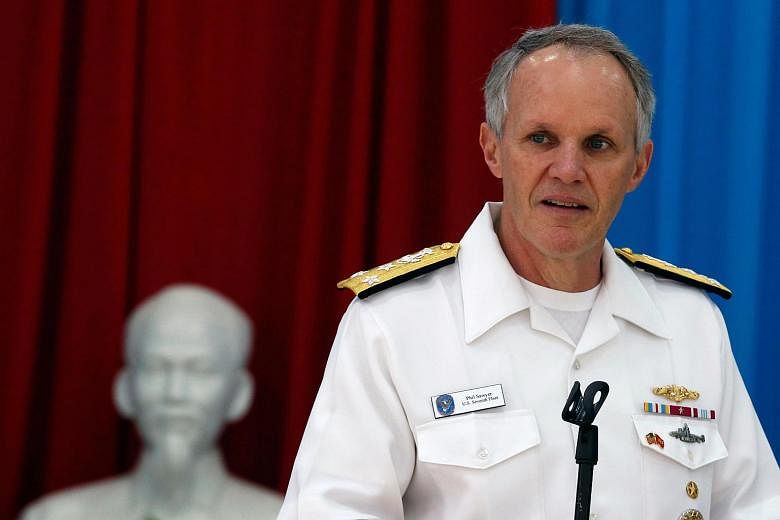SINGAPORE - The new commander of the United States Navy 7th Fleet says he is exercising greater control and care over its destroyers after 17 sailors died in two maritime collisions last year - one of which occurred in Singapore waters.
Visiting Vice-Admiral Phillip Sawyer, said sailor training and ship maintenance have been improved since he took over after the accidents.
"I'm comfortable and confident that we have got the process in place," he said in a media interview during a visit to Singapore on Thursday (May 10). He added that more work needs to be done.
Ten US sailors died after the USS John S. McCain collided with an oil tanker last August in what is believed to be the worst ship collision to occur in Singapore waters.
Their deaths followed seven others in a collision between the USS Fitzgerald and a container ship near Japan in June and raised questions over the US Navy's operations and procedures. Both vessels belong to the 7th Fleet.
Vice-Adm Sawyer said that he now has greater oversight on fleet maintenance, training and operations. "I own the whole thing and they all provide support to me to execute that schedule," he said.
Previously, all three units were run more or less independently, he said. Vice-Adm Sawyer said that the three aspects had to "be in balance" for the ships and sailors to be better prepared for sea operations.
Last November, the US Navy found that the USS John S. McCain's former commanding officer had not stationed extra manpower on the deck to help with navigation in the early hours of the morning when it entered the congested channels, despite recommendations to do so from other officers.
During the interview, Vice-Adm Sawyer also talked about the US presence in the disputed South China Sea, given China's recent moves to flex its military muscles there.
"It is expected that countries will try and protect and defend its international interests," he said, adding that a level of transparency could be "exremely helpful for everybody."
"It helps people understand what you are doing and why you are doing it."
Asked about Asean plans for a maritime code of conduct, he said that it would be helpful.
"It is a good way to go forward, particularly if there are a lot of disagreements or potential disagreements," he added.
Despite geopolitical concerns, Vice-Adm Sawyer said that he will stay true to his mission, as the fleet had done for the past 75 years.
"I will continue to operate and sail everywhere and anywhere that international law allows."

